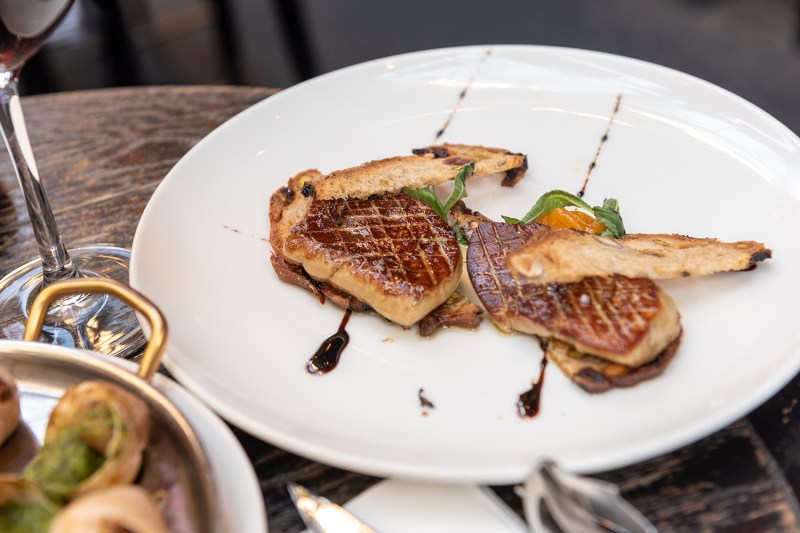In late 2019, New York City passed a measure to officially ban the sale of foie gras, a French delicacy traditionally made from the liver of a duck or goose who has been force-fed to enrich the texture and flavor of the organ. NYC now joins the entire state of California in forbidding foie gras from appearing on shop inventory lists and restaurant menus, and other American cities and states may soon follow suit.

While the foie gras ban is, of course, excellent news to animal rights activists and others who oppose the unethical treatment of living creatures, many New York and California diners who love the silky mouthfeel and nuanced flavor profile of this luxurious spread find themselves wondering how to replicate this dish in a way that doesn’t violate any laws. We spoke with chefs to get their thoughts on making “foie gras” alternatives that abide by the restrictions without sacrificing flavor, and they shared three viable options to help you satisfy those foie cravings in an ethical way.
Nut and Mushroom Foie Gras
Plant-based spins on dishes typically made with animal products are having a major moment right now, so it should come as no surprise that a savory vegan version of foie gras exists. Executive chef Lauren Mahlke of Planted Table in Oakland, CA prepares hers with mushrooms and nuts, telling us that “[we make] a version of the most wonderful nut-mushroom pate — or ‘vegan foie gras’ — using pecans, cashews, and various mushrooms to add rich umami and fat to a vegan pate. My favorite mushroom right now is Hedgehog, which has such a meaty, sweet taste when roasted. Puree [the mushrooms] with soaked pecans and cashews, a splash of liquid aminos, and shallots deglazed with Cognac [to] add a rich, salty, and sweet element that [delivers] foie gras flavor without any of the cruelty.”
Free-Range Duck Foie Gras
The forced feeding of foie gras ducks and geese is widely considered a form of animal cruelty, which provides the basis for the laws opposing the dish. However, some foie purveyors manage to produce a product that doesn’t require compulsory feeding and that uses livers harvested from ducks raised in an ethical manner. “At Breda in Amsterdam, [chef] Guillaume de Beer makes an amazing foie gras. But he doesn’t make it by force-feeding geese. It still has liver and fat in it, but it’s made with a machine. So the way I understand it, the ducks are raised in a free range and slaughtered in an ethical way, and then the livers are used to made foie gras,” says culinary blogger Heloise Blaure of HomeKitchenLand.
Chef/owner Deborah VanTrece of Twisted Soul Cookhouse & Pours in Atlanta also appreciates foie gras variations with a focus on animal welfare, and she specifically recommends “Foie Royale, a German product that makes an excellent alternative [that] mimics the foie gras taste and texture brilliantly. The [most] impressive part is the texture of Foie Royale. It is so much like the real thing. What a time to be alive … we can enjoy foie gras without the cruelty and we can make plant-based meat that ‘bleeds’ as red meat alternatives.”
Infused Chicken-Liver Foie Gras
Chicken livers already factor into many charcuterie and appetizer menus, often in the form of chicken-liver mousse. For chef Dave Beran of pasjoli in Santa Monica, CA, livers from ethically raised and slaughtered chickens can work in foie gras, provided that they receive a flavor infusion to imbue them with the necessary richness. “We’re battling the curse of no foie gras here in LA. So chicken livers infused with Madeira, butter, cream, port, and shallots, [and] prepared in the style of a traditional goose liver torchon is our own take [on a typical foie gras],” Beran tells The Manual of the foie gras alternative offered on his own menu after the California ban took effect.



